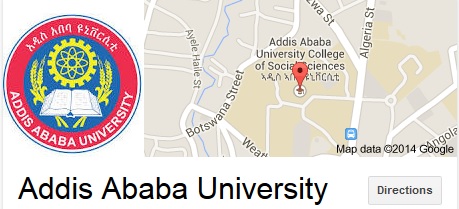Graduate Profiles
Graduate Profile (MSc)
The MSc graduates in Clinical Laboratory Science are expected to:
- Teach clinical laboratory science in universities and colleges;
- Independently design and undertake problem-solving research according to the national needs and priorities;
- Work in research laboratories by developing new testing technologies;
- Establish and implement laboratory quality assurance systems (both national and international) to improve the overall laboratory system in the country;
- Establish Laboratory Information Systems and carry out administrative functions of a health laboratory;
- Design, evaluate and implement new test methods;
- Perform complex laboratory tests that require special skills and share expertise to subordinate staff;
- Confirm and verify results through an in-depth knowledge of scientific methods, principles and instrumentation theory.
Graduate Profile (BSc)
Students who have successfully completed a BSc Degree in Medical Laboratory Sciences will be able to apply their knowledge, skills, and attitudes as follows:
Knowledge
- Use their critical thinking skills to improve the laboratory-working environment;
- Familiarize themselves with the latest scientific findings to improve the quality of services rendered to the society;
- Recognize the relationship between laboratory findings and common disease pathogenesis;
- Identify factors that affect procedures and results, and take appropriate actions within predetermined limits;
- Recognize ways of surveillance of communicable diseases;
- Confirm and verify results through an in-depth knowledge of scientific methods, principles and instrumentation theory;
- Correlate and interpret data based on knowledge of pathophysiology;
- Establish and monitor programs to ensure the accuracy of tests;
- Participate and contribute to laboratory logistic procurement, evaluation, set up specification and equipment auditing.
Attitudes
- Maintain the medical laboratory ethical code of conduct standards;
- Advocate the proper use of laboratory tests;
- Contribute to stewardship of their profession;
- Recognize, adhere and promote established safety rules;
- Pursue graduate training in medical laboratory science and other health related disciplines;
- Institute and promote safety, quality control and quality assurance in clinical and public health laboratories;
- Participate in policy, professional standards, continuing professional development issues pertaining to the medical laboratory profession;
- Respect and be compassionate to patients, their relatives and other professionals.
Skills
- Perform advanced chemical, biological, hematological, immunologic, microscopic, and molecular tests;
- Perform routine laboratory tests;
- Participate in and contribute to the detection, investigation, information dissemination in disease outbreak situations;
- Involve in surveillance and control of communicable diseases;
- Participate in research and development of new medical laboratory diagnostic technologies;
- Assist, participate in and conduct research;
- Analyze environmental samples to detect toxic contaminants such as lead, pesticide residue, heavy metals;
- Perform tests on specimens from persons, food, water and beverage implicated in food and water borne illness;
- Plan laboratory logistic procurement, evaluation, setup and auditing;
- Monitor the inventory of laboratory equipment and supplies in storage areas;
- Provide professional services, leadership and quality assurance in clinical/public health laboratory;
- Monitor and maintain the proper functioning of medical laboratory equipment/reagents;
- Store and use laboratory supplies and dispose wastes safely;
- Test blood levels of some drugs;
- Screen for the presence of drugs of abuse and toxins;
- Supervise medical/clinical laboratory technicians;
- Develop and modify clinical laboratory procedures;
- Demonstrate leadership and management skills;
- Engage in policy, professional standards, and continuing professional development issues pertaining to the medical laboratory profession;
- Collect, preserve, store and transport referral specimens for proper and safe testing;
- Communicate effectively both verbally and in writing;
- Collect, document, retrieve and interpret laboratory data clearly and safely.







